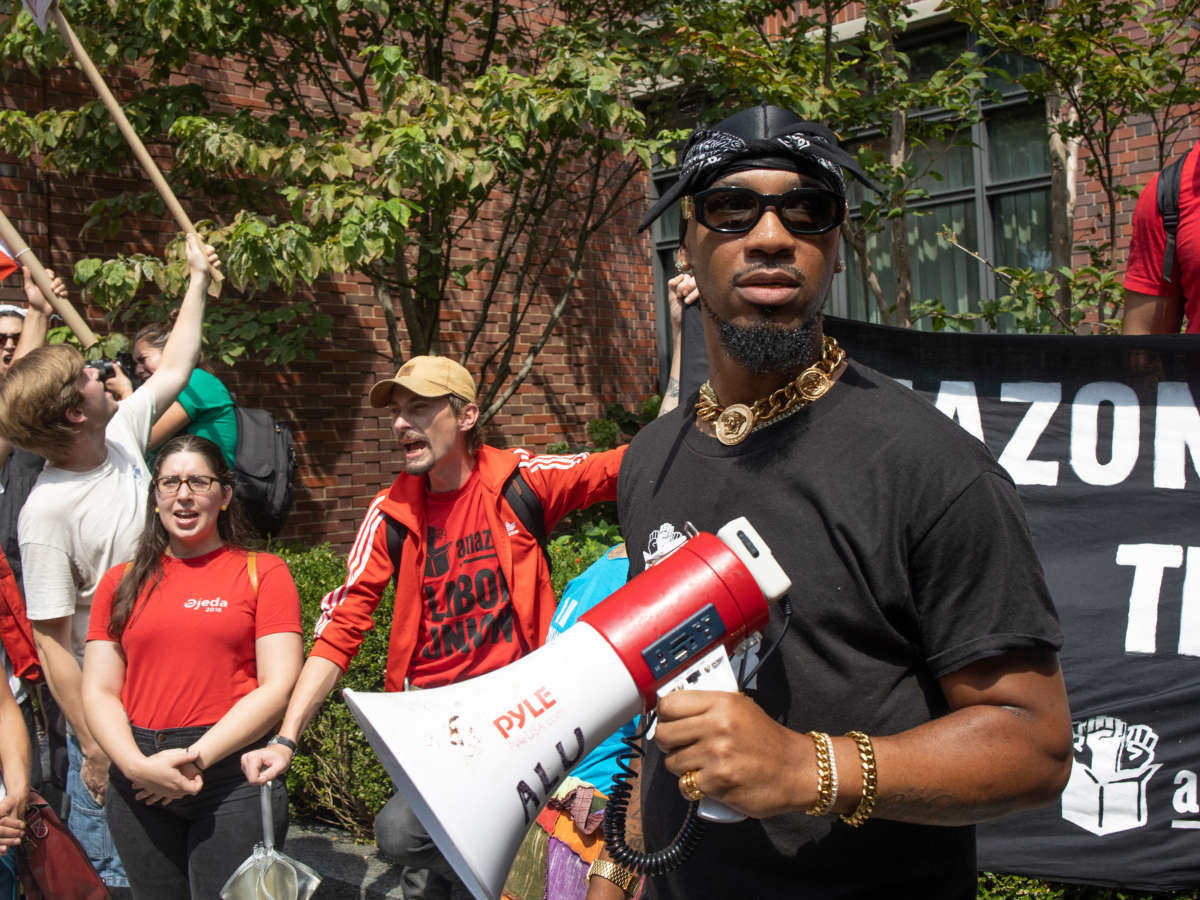Hundreds of Amazon workers waged a work stoppage in protest after a fire broke out in their warehouse in Staten Island, New York, on Monday, according to the union that represents the workers.
According to Amazon Labor Union (ALU), over 650 employees began protesting at around 8 pm on Monday, saying that they could still smell fumes from the fire that had broken out in a trash compactor earlier that day. Night shift workers were taken to the break room when the fire broke out, and refused to leave after they were told by managers to return to work, the union said; according to ALU leaders, managers threatened workers with write-ups if they continued their protest.
The work stoppage lasted nearly three hours, according to ALU, and a large portion of the workers marched into the manager’s office to demand that workers get sent home with pay. Workers also protested an offer of 25 cent raises that the company had made in the past week — which the union called “insulting” and said would amount to a pay cut due to inflation — and the fact that workers at the warehouse have still yet to have their union recognized by the $1.2 trillion company.
Warning Workers screaming EVACUATE yet Amazon refuses to let Night Shift be excused with pay the burnt chemicals from the compactor still linger by docks hundreds of workers want to go home. Amazon will be held accountable @amazonlabor pic.twitter.com/XOpiRHLkQH
— Christian Smalls (@Shut_downAmazon) October 4, 2022
ALU says that the stoppage may be the largest collective action ever taken by Amazon workers. It is also the union’s first major work stoppage since it voted to unionize earlier this year.
A lawyer for the union, Seth Goldstein, told Motherboard that workers said the compactor that caught fire had been malfunctioning and smoking for weeks.
“God forbid they have to replace [the compactor] and lose their profits,” said Goldstein. “One of the reasons people are unionizing at Amazon is because the employer cares about profits, and doesn’t care about their lives. Where’s the transparency here?”
According to New York Times’s Noam Scheiber, one employee said that the warehouse still smelled like fire as of Tuesday. The employee also said that day shift workers had been sent home early.
Amazon claimed that the stoppage only involved a “small group” of employees. “[Yesterday afternoon] there was a small fire in a cardboard compactor outside of JFK8, one of our facilities in Staten Island, New York,” an Amazon spokesperson said in a statement. “All employees were safely evacuated, and day shift employees were sent home with pay. The FDNY certified the building is safe and at that point we asked all night shift employees to report to their regularly scheduled shift.”
ALU president Chris Smalls said on Twitter that the fire was especially dangerous because Amazon has a “lack of safety drills.”
Safety concerns are consistently a problem at Amazon, workers and labor advocates say. When six Amazon workers died after a tornado caused an Amazon warehouse to collapse in Illinois late last year, progressive lawmakers raised concerns about what they wrote was a “wholly inadequate safety culture at Amazon, which potentially contributed to the death of six workers.”
Workers said that Amazon’s policy of not allowing them to have smartphones on their person at work endangered them during the disaster. The company has since lifted that policy.
The lawmakers highlighted concerns brought to light by an Occupational Safety and Health Administration (OSHA) investigation that found that the company maintains only the bare minimum safety requirements.
Data shows that Amazon warehouses are a uniquely unsafe place to work. According to a report by the Strategic Organizing Center released in April, Amazon accounted for about half of all warehouse injuries in 2021, despite only employing about a third of the warehouse workforce. Workers and labor advocates say that this injury rate can be partially chalked up to the company’s extremely harsh and unbending work culture, which prioritizes speed over everything else.


